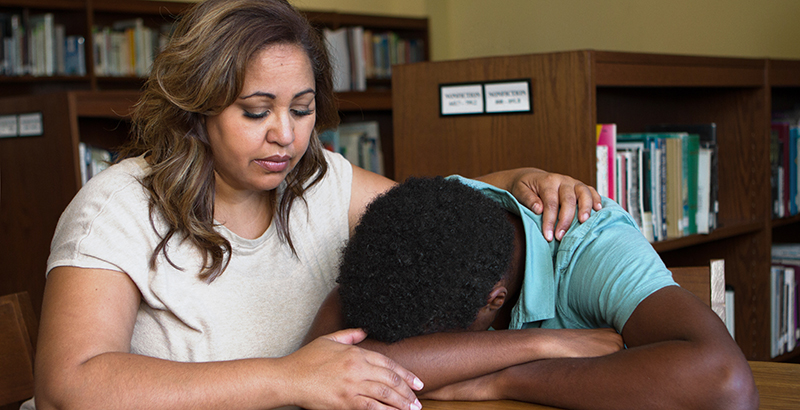Opinion: Charter Schools Can Take the Lead in Creating a New Vision for Discipline. Here’s How We Do It at My Washington School

School discipline and the role it plays in the school-to-prison pipeline has been a long, contentious source of debate in both education circles and our community at large for some time now. Unfortunately, school disciplinary actions and “zero tolerance” policies consistently affect students of color disproportionately. But as with any debate, sound bites and misleading stats don’t always do the best job at telling the whole story.
Public charter schools have the best opportunity to spark new trends and lead the charge to change this pattern. While charter schools are constantly thinking of new ways to give students the best education possible, the approach to student discipline shouldn’t be left out of the equation. With unique flexibility to implement curriculum and procedures tailored to student needs, charter schools can drive new approaches that put students first and help curb the school-to-prison pipeline.
At Washington Leadership Academy, we’ve taken the lead in creating a different kind of vision for discipline at our school — one that focuses on solutions rather than punishments and meets our kids where they are. Given today’s racially charged climate and near-constant headlines of discrimination and police brutality, these issues are an everyday reality for our high school kids, especially with a student population that is 90 percent black. When we ignore the real-world experiences and hardships of students, we shirk our responsibility to develop solutions tailored to them.
We don’t take the easy route of issuing suspensions and expulsions at the first sign of trouble. Instead, we ask the tough questions: What do our kids need from us as supporters and educators? What actions can we take to ensure they learn from their actions and aren’t only punished for them? What tactics are most effective at bringing students back together after conflict arises?
In collaboration with Restorative D.C., we’ve developed a restorative justice-informed approach to discipline. When a student engages in problematic behavior at WLA, he or she will write a letter empathizing with the victim, engage in a restorative conversation with an adult or the victim, or present to a larger group at the school on why that action is harmful. Our students have stepped up and taken ownership to facilitate these processes themselves: being first responders, leading de-escalation talks, and running weekly conflict resolution circles before problems begin.
Our goal is to ultimately build these approaches out even further, so for every conflict that arises, we have a restorative justice “bank” filled with different steps to pull from. We’re heartened with the evidence we’ve seen already, with many students stating that they would’ve already been kicked out of their old schools altogether.
As the director of social emotional Learning at WLA, I have seen firsthand how valuable and effective this kind of approach can be at reconciling the need for order in the classroom with the importance of a thoughtful, empathetic approach. Before WLA, I worked at a “no excuses” school, which employed heavy-handed and intensely rigid disciplinary systems. At these schools, students who get in trouble for talking back to a teacher, for example, are immediately kicked out of class, fill out some paperwork, and are sent home with a suspension letter. No check-ins. No further conversation.
Because the focus is solely on obedience, this approach leaves no room for considering student trauma and experiences outside of school, ultimately setting our kids up for failure.
At WLA, we believe that suspensions should be the last resort, not the first — and instead seek to reach a place of understanding. Our students are less distracted in class, and teachers experience less interruptions because discipline is rooted in mutual respect and empathy. By bringing kids into conversations, instead of excluding them when they make mistakes, we can build a more inclusive and truly student-centered solution.
School discipline is a highly complex issue, and charter schools can be only one piece of the puzzle. Our schools and traditional district schools must work together to implement substantive changes that produce real results for kids. While our approach is by no means the perfect solution, we are proud of the progress we have made, and we are continuing to tailor and improve our model. I hope that by sharing our story and vision, we can show that a different approach to discipline is not only possible but can be highly successful at keeping students where they belong: in the classroom.
Dwaine Carr is director of social emotional learning at Washington Leadership Academy, a public charter high school in Washington, D.C.
Get stories like these delivered straight to your inbox. Sign up for The 74 Newsletter

;)